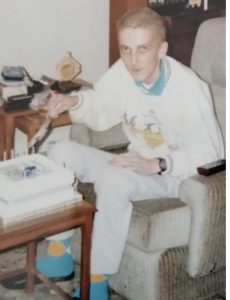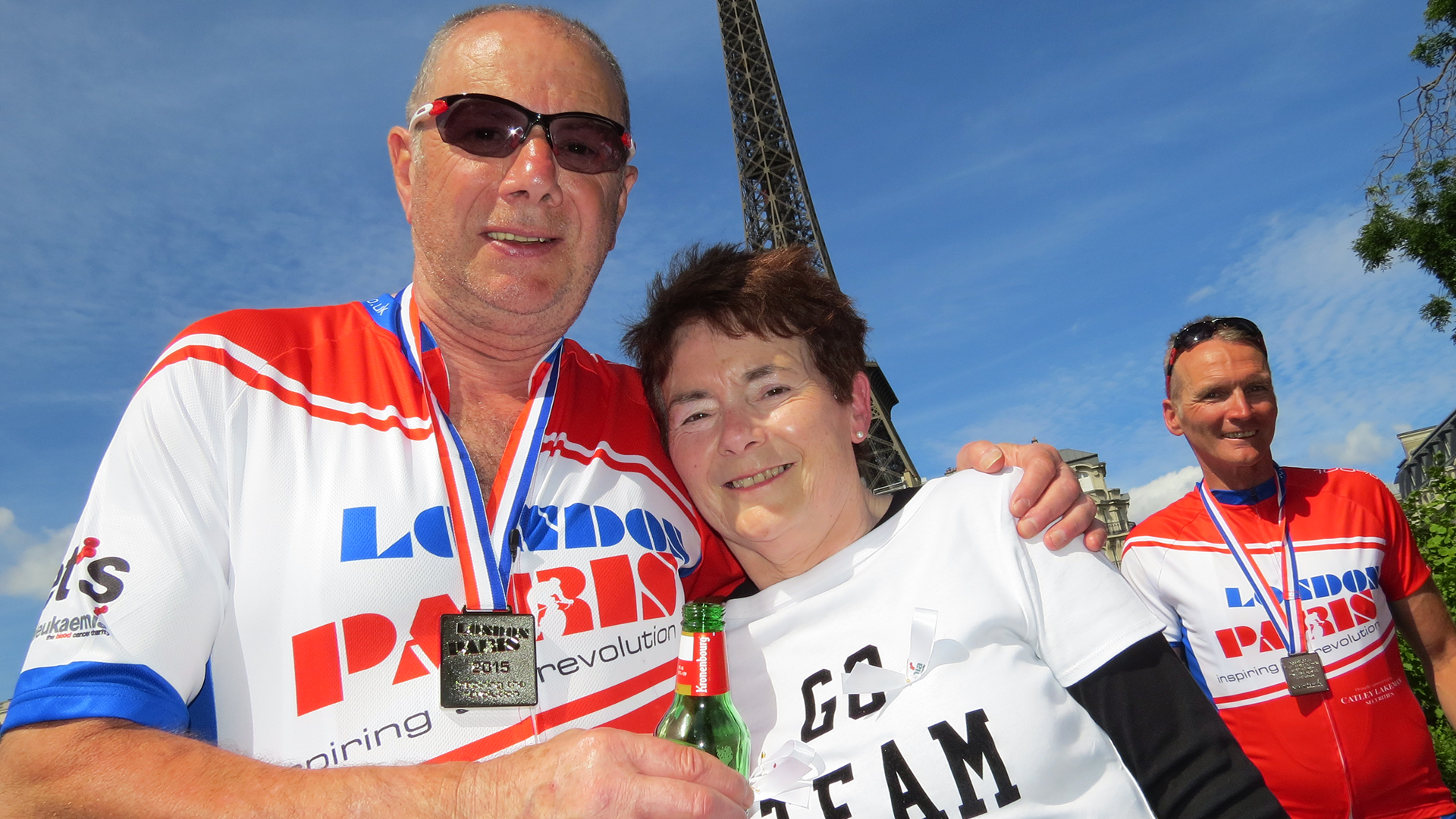
Patient Case Study: From 1986 to Today: Ross’s Journey with Leukaemia
From 1986 to Today: A Survivor's Journey with Acute Lymphoblastic Leukaemia
.jpg)
Life was going well for me. I’d just got a new job as Director of Public Health and had moved into a cottage in the country, both lifelong dreams of mine. I’d been feeling tired and run down and knew there was something wrong, then after some blood tests in January 2016, I came home from an evening meeting to find the GP deputising service at the door, telling me to go to straight to hospital. I was dangerously anaemic. The next day I was told I probably had leukaemia and following a bone marrow biopsy I found out that my genetic markers put me at a high risk of relapse, even if I did manage to get into remission. That meant that my only hope of a cure was three or four rounds of high intensity chemotherapy and then a stem cell transplant. The medical team also told me I would be off work for at least 6 months, which was more devastating to me than the diagnosis.
The first round of chemo didn’t work, the AML was still there, so I quickly started a more intensive regime, which thankfully did get me into remission. The plan then was for me to go straight on to the stem cell transplant, but unfortunately a couple of days before I was due to be admitted to hospital, I found out that the donor had failed his medical and the transplant couldn’t take place. I went back into hospital for another round of chemo to keep the AML at bay while another donor was found. My luck was in, and Anthony Nolan found another donor for me and I had my transplant in July 2016.
Because the chemotherapy is so intensive, I had to spend a month at a time in an isolation room. I am a real outdoors person and very active and sociable, so now that I look back, I think that the 5 months I spent in isolation during 2016 has been one of the real achievements of my life. One way that I coped with it was to carry on working remotely from my room. That really helped me get some perspective and helped me keep my mind off my circumstances. Throughout the treatment I tried to keep a positive mind-set, drink gallons of water and really engage with my treatment, so I knew what was happening and how I should be feeling. I have to say, other than for a couple of weeks of the transplant, I was lucky enough not to have horrible side effects. When I did get infections, the team that were looking after me got me on treatment straight away so I didn’t have many ill effects at all.
Because I was found to be at high risk of relapse, I was eligible to be enrolled in a clinical trial through Cure Leukaemia, the research charity that is based in the Centre for Clinical Haematology at the QE Hospital in Birmingham. The trial tested a new conditioning treatment that prepared my bone marrow and blood system for the transplant, and compared it to the standard treatment. I was randomised to the experimental arm of the trial, which meant that I got the new treatment. I also get lots of follow up because I’m on the trial. Being involved in clinical trials is very important to me, as it’s only through research that we will find out how to cure this horrible disease. Only one in 10 stem cell transplant patients in the UK is on a clinical trial. It’s shocking to think that the NHS spends tens of millions of pounds on stem cell transplants each year, but we don’t know much more about why they work for some people but not others, than we did 20 years ago. That’s why I’m keen to encourage as many people as possible to go on trials and to support Cure Leukaemia who fund the doctors, nurses and facilities needed to do research.
Debs with Clive Read’s Race To The Stones Team
I went back to work in November 2016 and celebrated a year since my transplant in July 2017. Even though I’m busy at work I often think about the amazing teams in Worcester and Birmingham who looked after me so well. A day doesn’t go by without me thinking about the young man who so selflessly donated his stem cells for a complete stranger. We owe it to him and all the other heroic donors to make sure that transplants work for as many people as possible. That’s why I’m supporting Cure Leukaemia’s Centre Appeal.
Without the Centre for Clinical Haematology, Cure Leukaemia and the groundbreaking clinical trial I have had access to, I probably wouldn’t be here now.
Thanks for reading my story,
Debs


From 1986 to Today: A Survivor's Journey with Acute Lymphoblastic Leukaemia

JMW Solicitors Becomes First North West Business to join Club 10